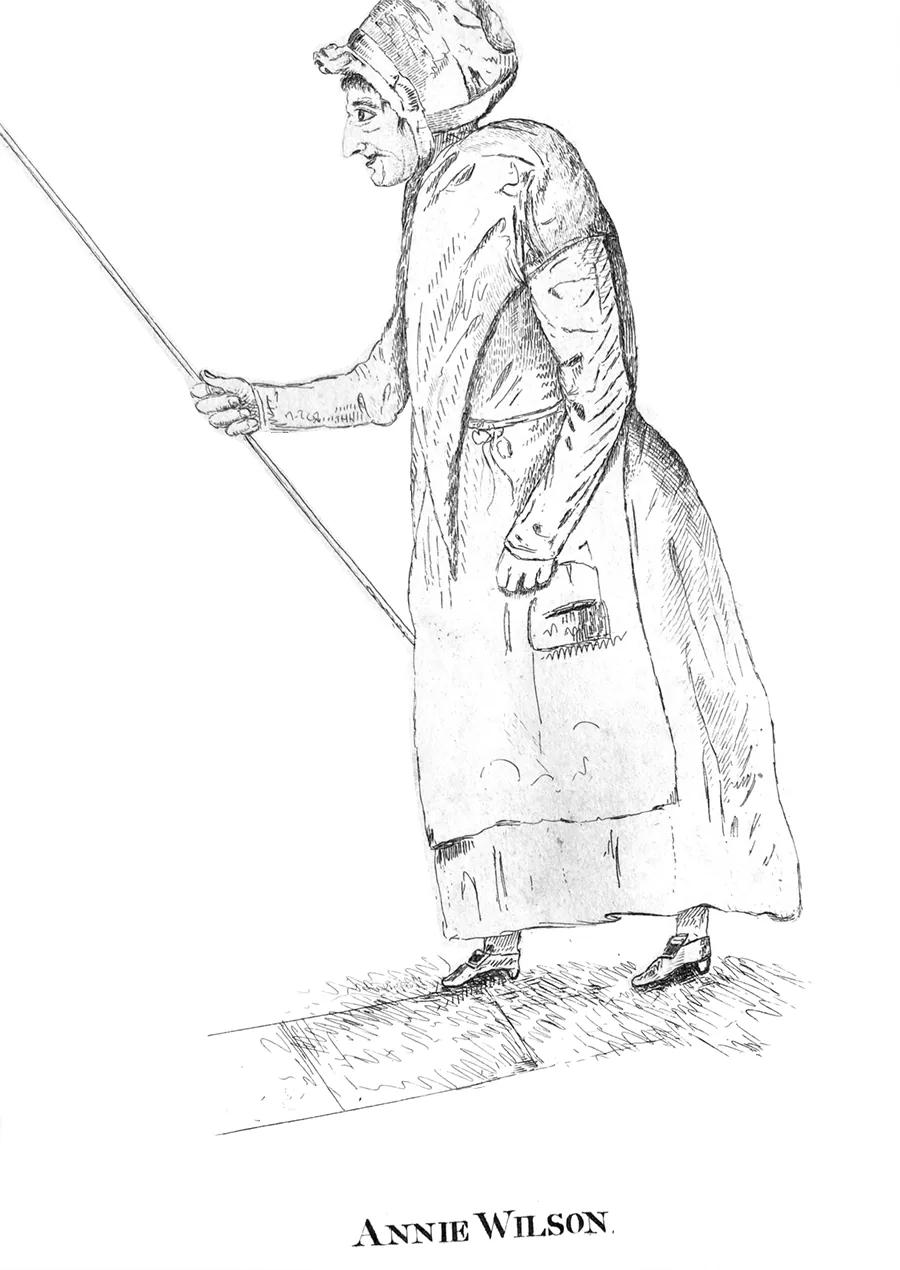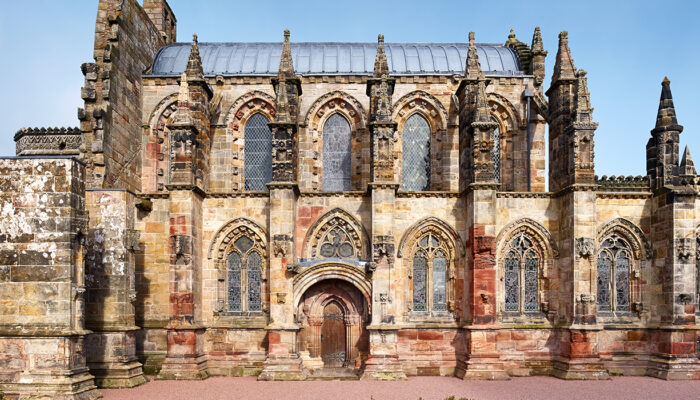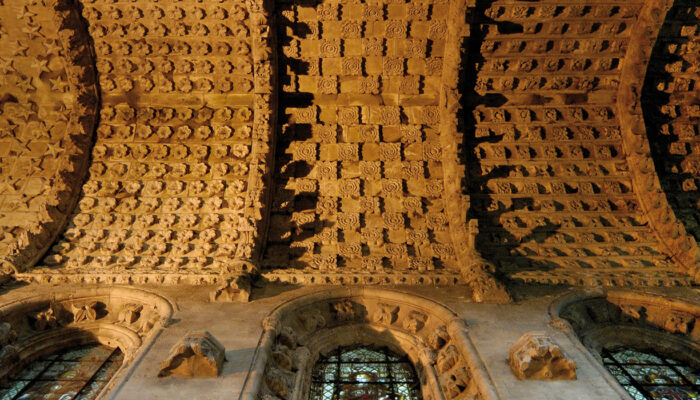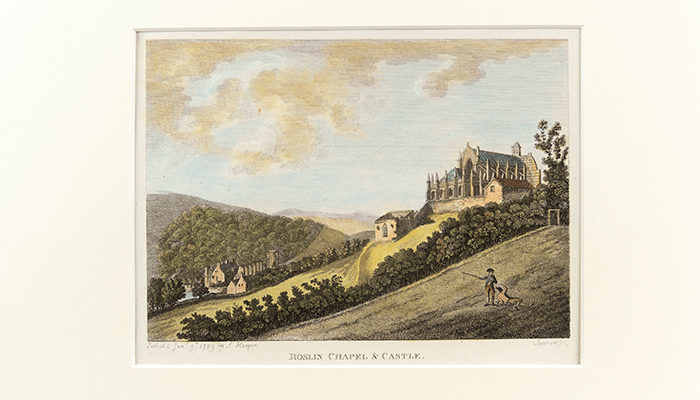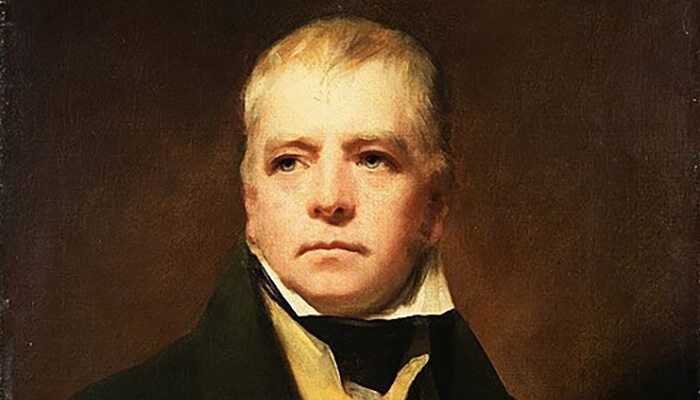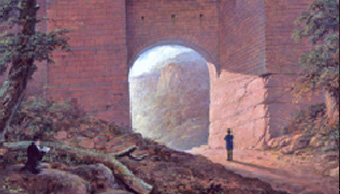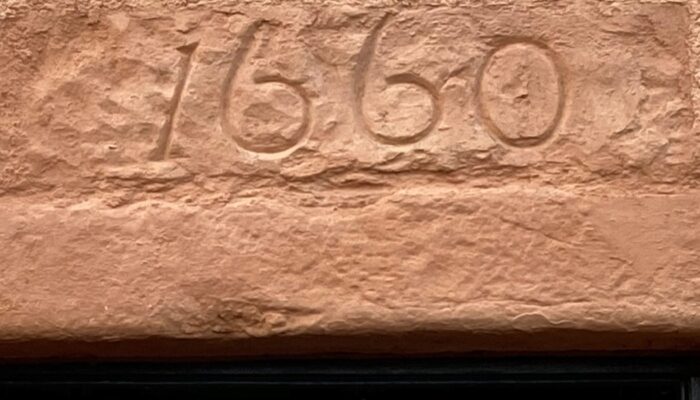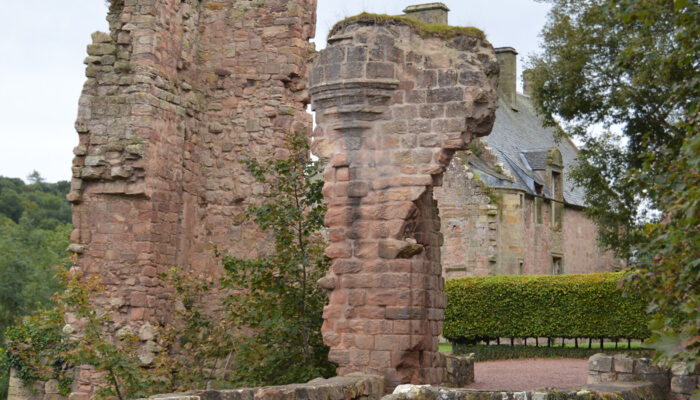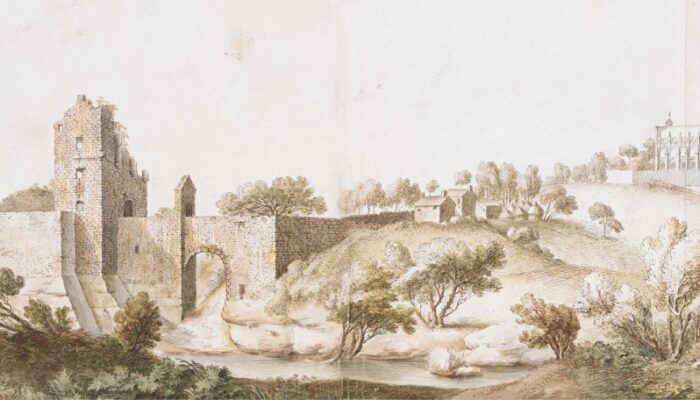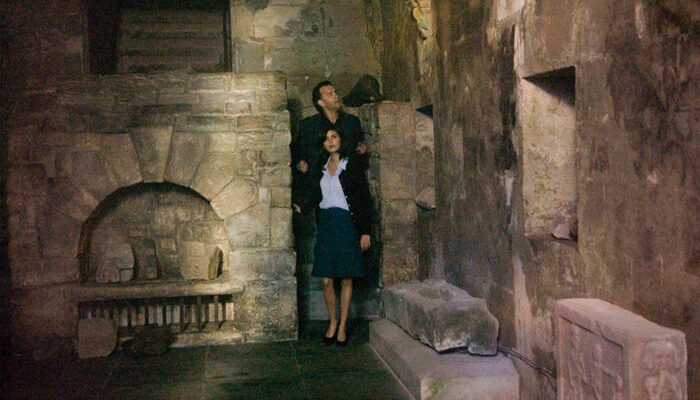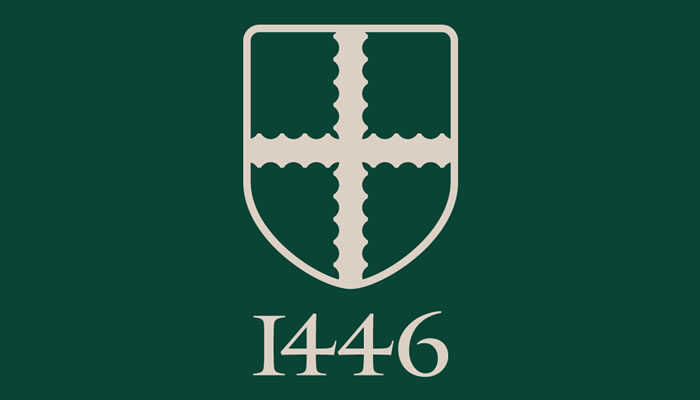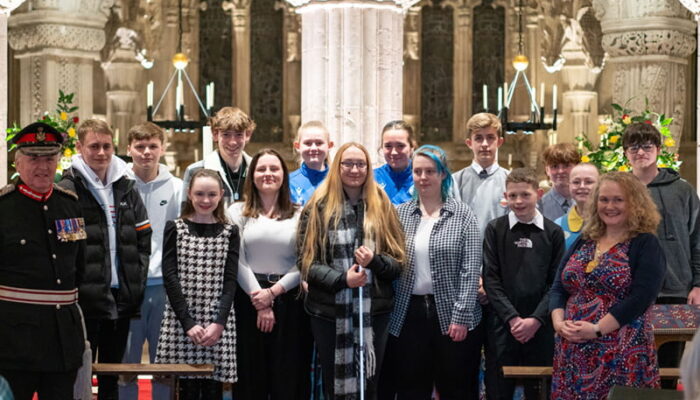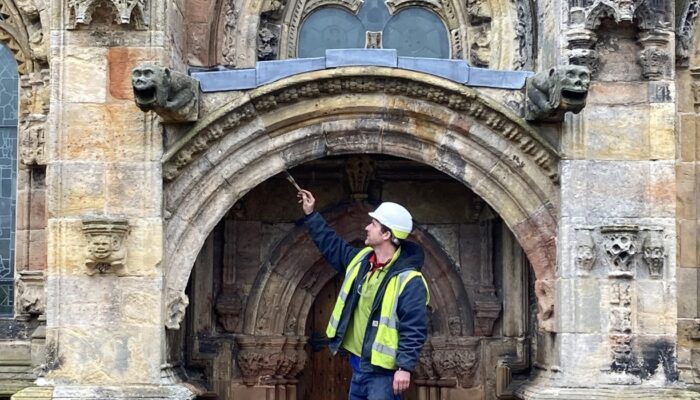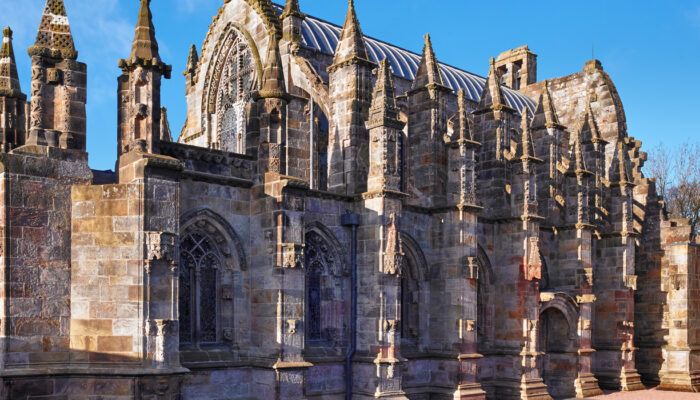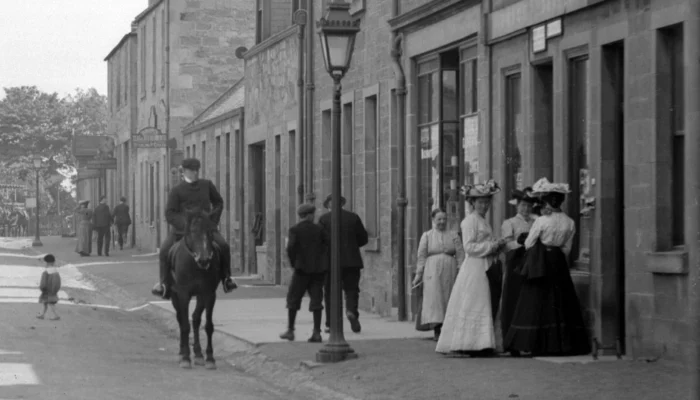
Annie Wilson
Innkeeper and Chapel Custodian
Many early visitors to the Chapel would have stayed at the Old Rosslyn Inn.
In 1783, the Wilson family obtained a lease for the rent of lands and houses at Rosslyn and, as well as Innkeepers, acted as custodians of the Chapel and Castle, given their proximity.
David Wilson ran the inn, with his wife Annie, and it was this landlady who made quite an impression on some notable visitors.
In 1787, Robert Burns visited the inn for breakfast and scratched a couple of verses on a pewter plate to the landlady.
A letter in The Gentleman’s Magazine, dated September 1817, describes another visit -
Lately did I journey with some friends to Roslin, a place ranked amongst the most romantic. The Chapel is one of the most beautiful and perfect specimens of Gothic architecture, existing at this side of the Tweed – its walls are entire and the dark brown coloured stone, of which it is constructed, is beautifully tinted with all the variegated blotches an incrusted vegetation can bestow. An old woman takes care of it and shews each crypt and buttress with the greatest possible minuteness to those who are led by curiosity to gaze on the beauties that mark this pile.
Annie Wilson recites the Latin epitaphs with apparent facility, but her pronunciation is so harsh and discordant, that to an English ear it is quite unintelligible. If anything in the way of interruption comes across her, she commences once more her elegant demonstration, her narrative of the Apprentice’s Pillar, with ‘his head bearing the scar just aboun the brow that his master’s made upon it, his mother’s head represented as if bewailing the death of her son and the apprentice’s maister’s head, just before he was hangit’.
This venerable damsel, of Caledonian nativity, at first sight struck me as a curiosity; she has held this office a great number of years and, to use her own words, ‘has puttit three gude men anunder the yearth’.
The writer made a sketch of her and said that his companions ‘pronounced with great emphasis an admirable likeness’
When Annie Wilson died, her daughter Margaret Oughton took over the inn’s tenancy. In the valuation roll of 1851, she is described as a widow, head of the household, innkeeper and farmer of 100 acres. Following her death in 1862, the inn closed down the next year and the name was transferred to the inn on the village Main Street, which still holds it today.
